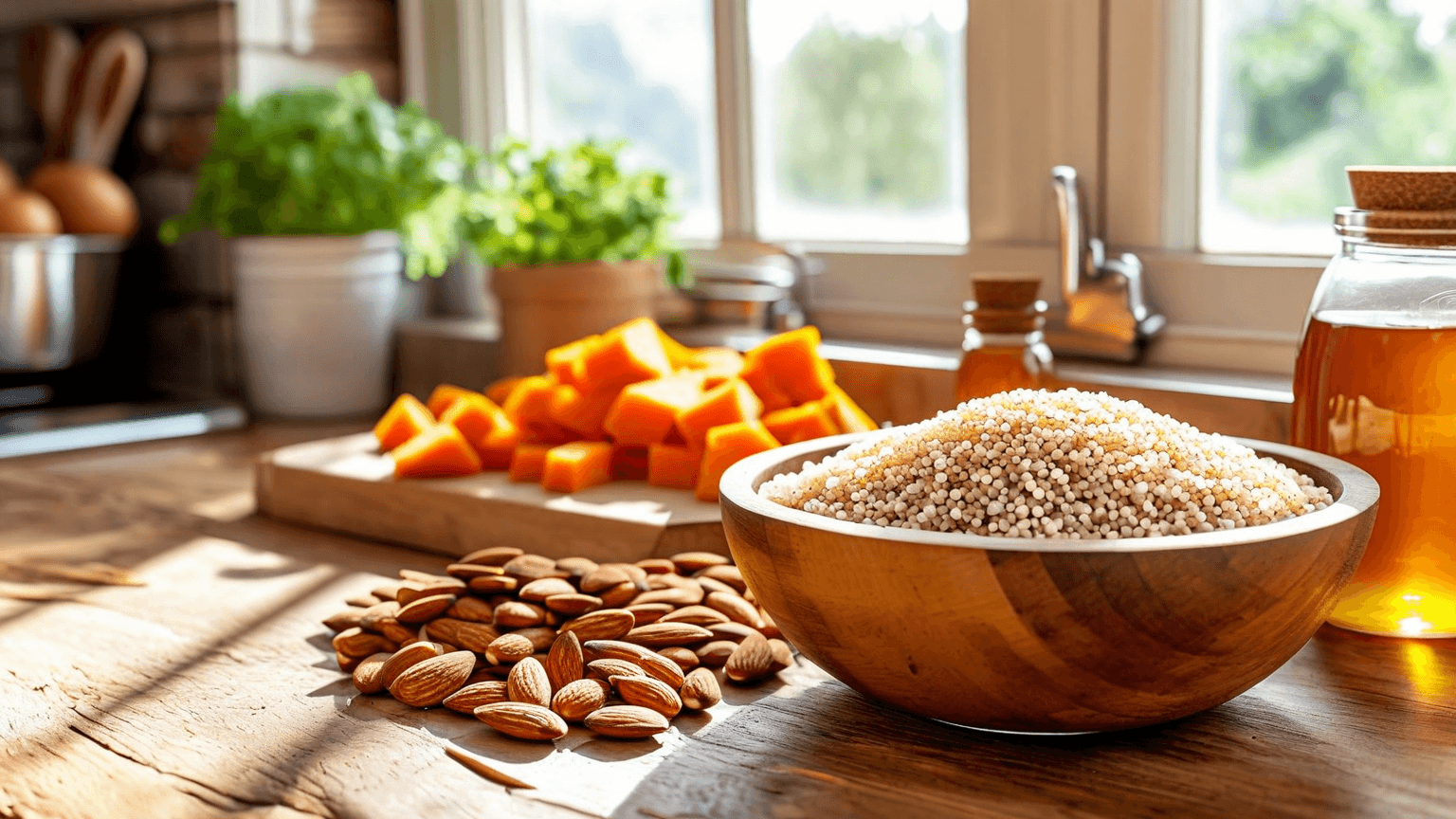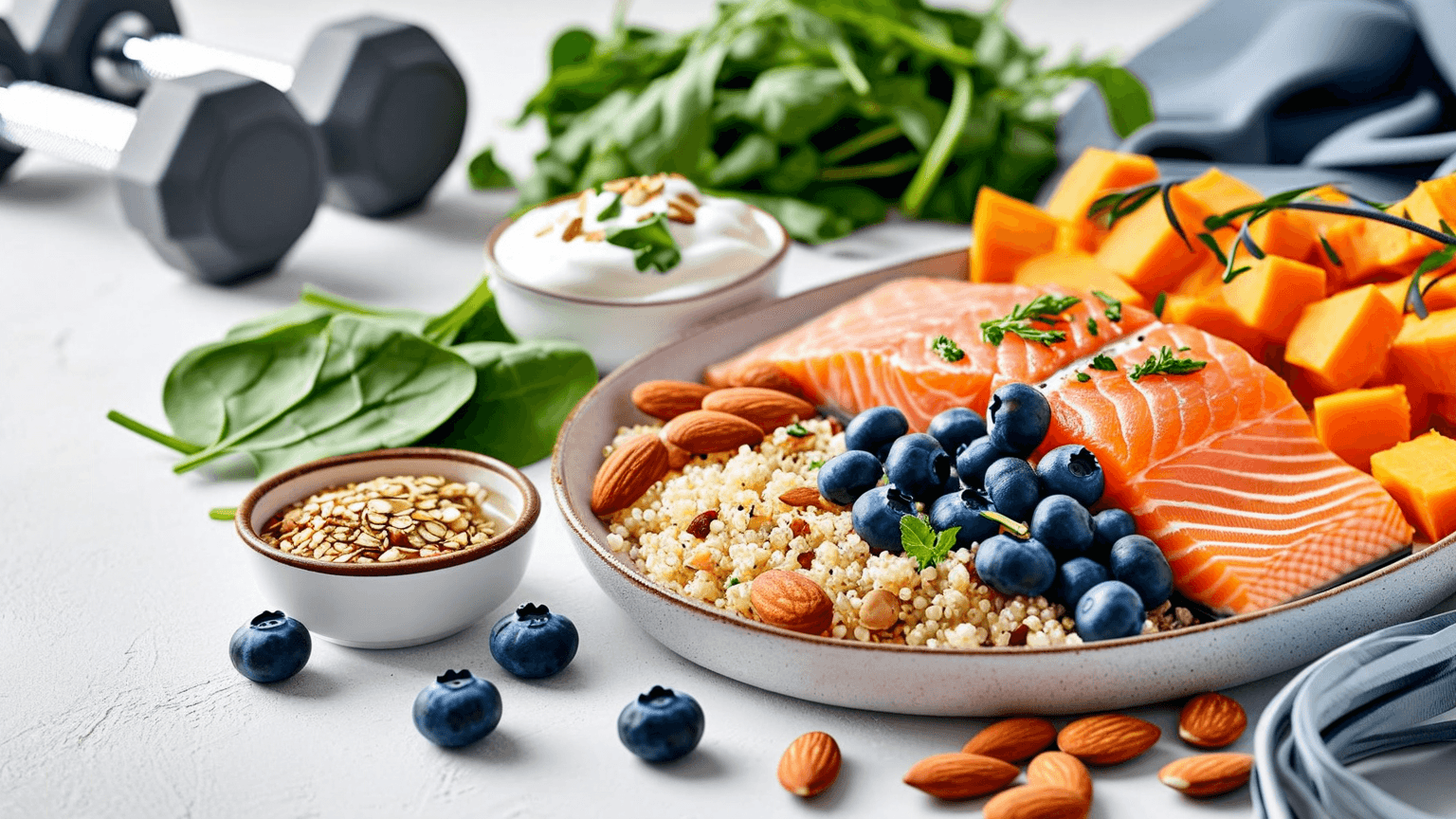Your grocery cart tells a story about your health future, but 87% of shoppers are unknowingly sabotaging their wellness goals with every aisle they visit. The average American consumes over 60% of their daily calories from ultra-processed foods, creating a cascade of inflammation, energy crashes, and nutrient deficiencies that modern medicine struggles to reverse.
What if swapping just five heavily refined staples for their power-packed alternatives could transform your energy levels, athletic performance, and long-term health in ways that surprise even nutrition experts? The science behind whole food nutrition reveals why your body craves these nutrient-dense alternatives and how they can revolutionize your relationship with food.
Why Your Body Rebels Against Heavily Refined Foods
Heavily refined foods undergo industrial processing that strips away fiber, vitamins, minerals, and phytonutrients while adding artificial preservatives, excess sodium, and hidden sugars. This processing creates what researchers call "food-like substances" that your body struggles to recognize and utilize efficiently.
When you consume refined foods, your blood sugar spikes rapidly, triggering insulin surges that promote fat storage and energy crashes. The lack of fiber means these foods bypass your natural satiety signals, leading to overconsumption and chronic inflammation. Your digestive system works overtime trying to extract nutrients from foods that offer empty calories instead of nourishment.
The inflammatory response triggered by refined foods affects every system in your body. Chronic low-grade inflammation impairs muscle recovery, clouds mental clarity, disrupts sleep patterns, and accelerates aging at the cellular level. Athletes who rely heavily on processed foods often experience longer recovery times, decreased endurance, and increased injury risk.
Your gut microbiome, which houses 70% of your immune system, suffers dramatically from refined food consumption. Beneficial bacteria that produce essential vitamins and neurotransmitters die off when deprived of the fiber and nutrients found in whole foods. This microbial imbalance affects everything from mood regulation to nutrient absorption, creating a cascade of health issues that compound over time.
The Top Power Packed Whole Grains That Outperform Refined Alternatives
Quinoa stands as the ultimate protein-complete grain alternative, containing all nine essential amino acids your muscles need for optimal recovery and growth. Unlike refined wheat products that spike blood sugar, quinoa provides sustained energy through its complex carbohydrate structure and 8 grams of protein per cooked cup. Its mineral profile includes iron, magnesium, and phosphorus that support oxygen transport and bone health.
Steel-cut oats deliver beta-glucan fiber that actively lowers cholesterol levels while providing steady energy release for hours. This soluble fiber forms a gel-like substance in your digestive tract, slowing glucose absorption and keeping you satisfied longer than instant oatmeal alternatives. The resistant starch in properly prepared oats feeds beneficial gut bacteria, supporting immune function and mental clarity.
Wild rice contains three times more protein than white rice and provides anthocyanins, the same antioxidants found in blueberries. These compounds protect against oxidative stress from intense training while supporting cardiovascular health. The chewy texture and nutty flavor make wild rice a satisfying base for power-packed performance meals that sustain energy without causing digestive distress.
Buckwheat, despite its name, contains no wheat and offers complete protein along with rutin, a flavonoid that strengthens blood vessels and improves circulation. This pseudo-grain provides sustained energy for endurance activities while supporting recovery through its anti-inflammatory compounds. Buckwheat's low glycemic index makes it ideal for athletes managing blood sugar stability during training periods.
Power Packed Protein Sources That Transform Athletic Performance
Wild-caught salmon delivers omega-3 fatty acids EPA and DHA that reduce exercise-induced inflammation while supporting brain function and joint health. The high-quality protein provides all essential amino acids in optimal ratios for muscle protein synthesis. Unlike farm-raised alternatives, wild salmon contains higher levels of astaxanthin, a powerful antioxidant that enhances endurance and reduces muscle damage.
Grass-fed beef offers a superior fatty acid profile with higher levels of conjugated linoleic acid (CLA) and omega-3s compared to grain-fed alternatives. The increased vitamin E and beta-carotene content supports immune function during intense training periods. Grass-fed beef provides heme iron, the most bioavailable form that prevents the fatigue and decreased performance associated with iron deficiency.
Pasture-raised eggs contain three times more omega-3s and twice the vitamin E of conventional eggs. The vibrant orange yolks indicate higher levels of carotenoids that support eye health and reduce inflammation. These eggs provide complete protein with the highest biological value, meaning your body can utilize nearly 100% of the amino acids for muscle building and repair.
Hemp seeds offer complete protein in a plant-based package, containing all essential amino acids plus gamma-linolenic acid (GLA), an anti-inflammatory omega-6 fatty acid rarely found in other foods. The 3:1 ratio of omega-6 to omega-3 fatty acids supports optimal inflammatory response and recovery. Hemp seeds provide easily digestible protein that won't cause the bloating or digestive issues associated with some protein powders.
Olive Oil Alternatives That Maximize Nutrient Absorption
Extra virgin olive oil stands as the gold standard for healthy fats, containing over 30 phenolic compounds that provide powerful antioxidant and anti-inflammatory effects. The monounsaturated fats in olive oil enhance the absorption of fat-soluble vitamins A, D, E, and K from other foods in your meal. Cold-pressed varieties retain the highest levels of beneficial compounds that heat processing destroys in refined oils.
Avocado oil offers a higher smoke point than olive oil, making it ideal for cooking at higher temperatures without creating harmful compounds. The oleic acid content supports cardiovascular health while the vitamin E protects cell membranes from oxidative damage. Avocado oil's neutral flavor makes it versatile for both cooking and raw applications without overpowering other ingredients.
Coconut oil provides medium-chain triglycerides (MCTs) that your body can quickly convert to energy without requiring bile acids for digestion. These MCTs bypass normal fat digestion pathways, providing rapid fuel for brain and muscle function. The lauric acid in coconut oil offers antimicrobial properties that support immune function and gut health.
Walnut oil delivers the highest concentration of alpha-linolenic acid (ALA) among cooking oils, providing plant-based omega-3 fatty acids that reduce inflammation and support brain health. The delicate flavor enhances salads and finished dishes while providing essential fatty acids that most diets lack. Walnut oil's anti-inflammatory compounds support recovery and may improve sleep quality when consumed regularly.
Potato Performance Nutrition for Sustained Energy
Sweet potatoes provide complex carbohydrates with a lower glycemic index than regular potatoes, offering sustained energy release perfect for endurance activities. The beta-carotene content converts to vitamin A, supporting immune function and vision health. Sweet potatoes contain unique proteins called sporamins that offer antioxidant properties not found in other root vegetables.
Purple potatoes deliver anthocyanins and phenolic acids that provide powerful antioxidant effects, reducing exercise-induced oxidative stress and supporting recovery. These compounds cross the blood-brain barrier, potentially improving cognitive function and reaction time during athletic performance. The unique phytonutrient profile makes purple potatoes a superior choice for athletes seeking natural performance enhancement.
Regular potatoes, when properly prepared, offer more potassium than bananas and provide resistant starch that feeds beneficial gut bacteria. The vitamin C content supports collagen synthesis and immune function, while the B-vitamin complex aids energy metabolism. Cooking and cooling potatoes increases resistant starch content, creating a prebiotic effect that supports digestive health.
Fingerling potatoes provide concentrated nutrition in smaller packages, with higher antioxidant levels per serving than larger varieties. The thin skins contain most of the fiber and nutrients, making them ideal for quick-cooking methods that preserve nutritional value. These varieties offer diverse flavors and textures that keep healthy eating interesting and sustainable long-term.
Creating Power Packed Performance Salad Combinations
The ultimate potato performance salad combines roasted sweet potatoes, wild arugula, hemp seeds, and a tahini-olive oil dressing for complete nutrition that supports both immediate energy and long-term health. This combination provides complex carbohydrates, complete protein, healthy fats, and a spectrum of vitamins and minerals that work synergistically to enhance athletic performance.
Layer nutrient density by including dark leafy greens like spinach or kale, which provide folate, iron, and nitrates that improve oxygen delivery to working muscles. Add colorful vegetables like bell peppers, carrots, and beets for antioxidants that reduce exercise-induced inflammation. The variety of colors ensures a broad spectrum of phytonutrients that support different aspects of health and performance.
Include healthy fats through avocado, nuts, or seeds to enhance the absorption of fat-soluble vitamins from the vegetables. These fats also provide sustained energy and support hormone production necessary for recovery and adaptation. The combination of fiber from vegetables and healthy fats creates lasting satiety that prevents energy crashes and unhealthy snacking.
Prepare components in advance for quick assembly throughout the week. Roast vegetables in batches, pre-wash greens, and prepare homemade dressings using quality oils and vinegars. This meal prep strategy ensures you always have power-packed options available when hunger strikes, preventing reliance on processed convenience foods that sabotage your health goals.
Common Mistakes That Sabotage Your Whole Food Transition
The biggest mistake people make when transitioning to whole foods is attempting to change everything overnight, leading to overwhelm and eventual abandonment of healthy habits. Your taste buds need time to adapt to less intense flavors after years of artificial enhancement from processed foods. Start by replacing one processed item per week, allowing your palate to gradually appreciate the subtle flavors of real food.
Many people assume that all "natural" or "organic" labels indicate healthy choices, but these terms don't guarantee minimal processing. Organic cookies are still refined flour and sugar, regardless of their farming methods. Focus on foods with single ingredients or minimal ingredient lists rather than relying on marketing claims that can mislead even health-conscious consumers.
Inadequate meal planning leads to convenience food reliance when hunger strikes and healthy options aren't readily available. Batch cooking grains, roasting vegetables, and preparing protein sources in advance ensures you always have power-packed components ready for quick meal assembly. Without this preparation, even the most motivated individuals default to processed options during busy periods.
Underestimating the importance of healthy fats causes many people to feel unsatisfied after meals, leading to frequent snacking on processed foods. Including adequate amounts of olive oil, nuts, seeds, or avocado with each meal provides satiety and enhances nutrient absorption. This satisfaction prevents the energy crashes and cravings that drive people back to refined food choices.
Advanced Strategies for Maximizing Nutrient Density
Food combining strategies can enhance nutrient absorption and utilization beyond what individual foods provide alone. Pairing vitamin C-rich foods like bell peppers or citrus with iron-containing leafy greens significantly improves iron absorption. Similarly, consuming healthy fats with carotenoid-rich vegetables like carrots or sweet potatoes increases antioxidant uptake by up to 400%.
Fermentation techniques unlock additional nutrients and create beneficial probiotics that support digestive health and immune function. Fermenting vegetables like cabbage into sauerkraut or kimchi increases vitamin C content while adding beneficial bacteria. These fermented foods enhance the overall nutritional value of meals while supporting the gut microbiome necessary for optimal nutrient absorption.
Sprouting grains, legumes, and seeds activates enzymes that increase protein availability and reduce anti-nutrients that can interfere with mineral absorption. Sprouted foods provide enhanced bioavailability of nutrients while being easier to digest than their unsprouted counterparts. This simple technique transforms ordinary ingredients into nutritional powerhouses with minimal effort.
Strategic timing of nutrient-dense foods around training sessions maximizes their performance benefits. Consuming easily digestible carbohydrates like sweet potatoes before exercise provides readily available energy, while post-workout meals should emphasize protein and anti-inflammatory compounds for optimal recovery. This timing approach ensures nutrients are available when your body needs them most for adaptation and repair.
Building Sustainable Habits for Long-Term Success
Success with whole food nutrition requires developing systems rather than relying on willpower alone. Create environmental cues that support healthy choices, such as keeping pre-cut vegetables visible in your refrigerator and storing processed snacks out of sight. These small changes in your food environment significantly influence daily choices without requiring constant decision-making.
Develop a repertoire of simple, satisfying meals that you can prepare quickly using whole food ingredients. Having 5-7 go-to recipes prevents decision fatigue and ensures you always know how to create a nutritious meal from basic ingredients. Focus on versatile preparations that can be modified based on available ingredients and personal preferences.
Track how different foods make you feel rather than obsessing over calories or macronutrients. Notice energy levels, mood, sleep quality, and recovery after consuming various foods. This awareness helps you identify which power-packed foods work best for your individual needs and creates intrinsic motivation to continue healthy choices.
Build flexibility into your approach by following the 80/20 rule, where 80% of your food choices come from nutrient-dense whole foods while allowing 20% for social situations or occasional treats. This balance prevents the all-or-nothing mentality that often leads to abandoning healthy habits entirely. Sustainable nutrition is about progress, not perfection, and should enhance rather than restrict your quality of life.
Transform your kitchen and health by embracing these power-packed alternatives to heavily refined foods. Start with one swap this week, whether it's choosing quinoa over white rice or adding olive oil to your salads. Your body will thank you with increased energy, better recovery, and improved performance that compounds over time. The journey to optimal nutrition begins with a single, conscious choice to fuel your body with the nutrients it deserves.
Related Topics
Explore more superfood insights and nutrition guidance.



